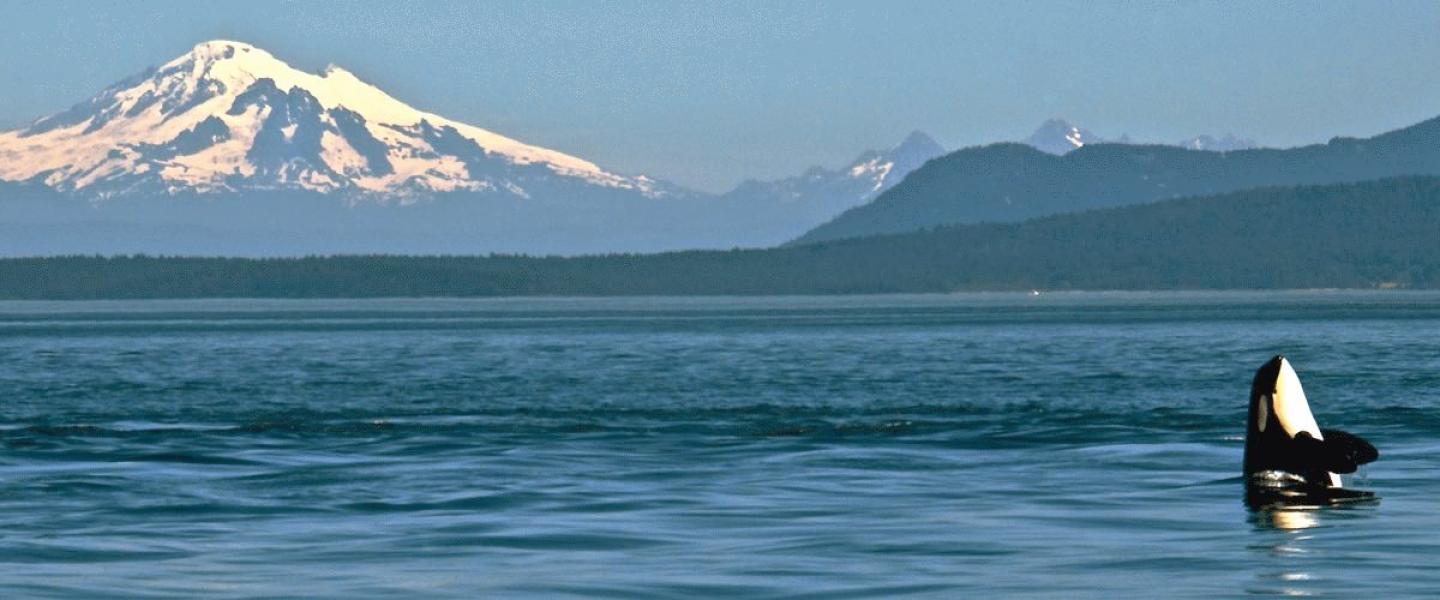
It's not a pretty fact, but it's science: killer whales are among the world's most contaminated marine mammals.
How is this possible? What toxins are the orcas dealing with? What are scientists looking at, and how can we help?
It comes down to PCB's, or polychlorinated biphenyls. These are a type of POP, "persistant organic pollutant," that first originated at the start of the last century and are commonly found in the Puget Sound. They were used for a good part of 70 years in paints, sealants, adhesives, hydraulic fluids, and electrical transformers. And even worse news: these molecules are so long-lived that they are still leaking into the ocean from various dump sites around the Puget Sound, including several of the military bases along the waterfront. Dr. Peter Ross, a toxicologist for Canada's Department of Fisheries and Oceans, has performed various studies on the threats that marine mammals are facing in this part of the world, and he shares that the main issue for orcas stems from the fact that they are an apex predator in our oceans. They're at the top of the food chain. This means that they accumulate the toxins from anything and everything that they eat, whether it be seals or fish.
PCB's are stored in the fatty deposits and blubber of marine mammals and other animals. This presents a major problem for nursing mothers. Their milk is sourced from their fat stores, which means that the rich milk they are feeding to their calves is incredibly toxic. Obviously, this is not healthy for a young orca, and may be to blame for the high infant mortality rate of wild killer whales. Another problem that arises for adult orcas is that when they are not recieving adequate amounts of food, their bodies start to process their fat stores for energy. This releases the stored toxins into their bloodstream, and athough POPs are not believed to kills orcas directly, they weaken the killer whales' immune systems and make them much more susceptible to diseases and illness, with lung infections high on the list. So, clearly, when the orcas are stressed for food sources, there are greater implications than just hunger.
So what can we do? It's easy to feel powerless, but there are little everyday choices that we can make as civilians who care about these beautiful animals and the environment that they call home. If we're careful about the household cleaners, pesticides, vehicles, and lifestyle choices that we make in our day-to-day life, we can help keep our rivers, oceans, and other waterways cleaner, leading to a healthier environment for orcas, now and in the future.